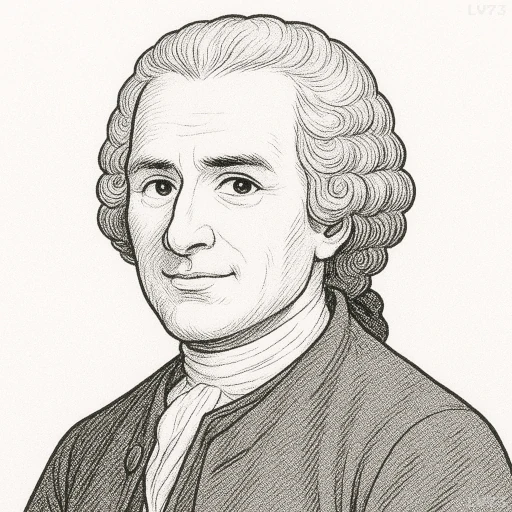“I only see clearly what I remember.”

- June 28, 1712 – July 2, 1778
- Born in Geneva
- Philosopher, political philosopher, writer, composer
table of contents
Quote
“I only see clearly what I remember.”
Explanation
In this quote, Jean-Jacques Rousseau touches on the complex relationship between memory and perception. He suggests that our understanding of the present is shaped largely by the memories we carry from the past. This implies that our interpretation of the world around us is often filtered through our previous experiences, beliefs, and recollections. Rousseau’s emphasis on memory suggests that our perceptions are not as objective or immediate as we might like to believe. Instead, they are colored by what we have experienced and remembered, highlighting the idea that memory plays a crucial role in shaping how we see and understand the world.
Historically, Rousseau’s views on memory and perception align with his broader philosophical inquiries into the nature of the self and human consciousness. In works like Confessions, Rousseau explored his personal experiences and memories as integral to understanding his own identity. He believed that a person’s relationship with their memories could deeply affect their view of themselves and the world. This quote underscores the idea that memory isn’t just a passive storehouse of information, but an active force that constructs our perception of reality.
In contemporary psychology and neuroscience, Rousseau’s insight has been echoed in theories about cognitive biases and reconstructive memory. We know that memories are not always accurate or reliable and can be distorted by emotion, context, or time. The way we remember past events can significantly influence how we perceive current situations. This concept is particularly relevant in areas such as therapy, where revisiting and reinterpreting past memories is often used to help individuals reframe their present experiences. Thus, Rousseau’s reflection on memory reminds us that our understanding of the world is often not as clear-cut as it seems.
Would you like to share your impressions or related stories about this quote in the comments section?



